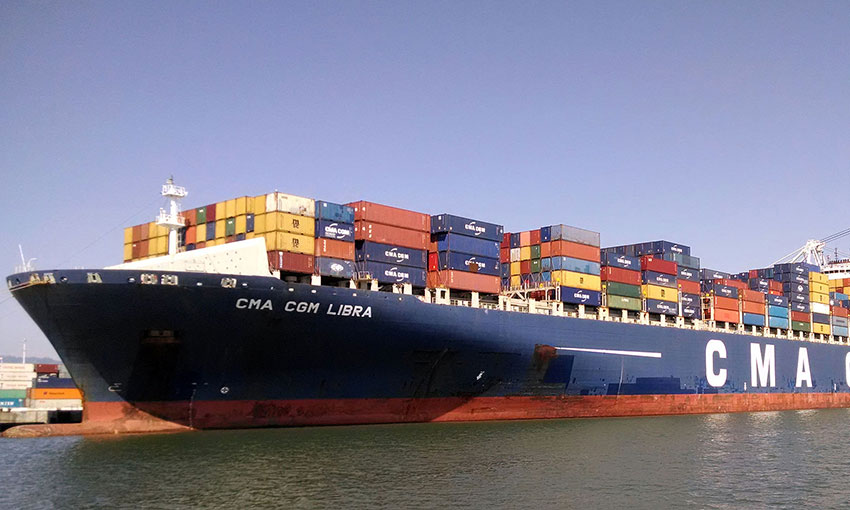MORE than ten years after the grounding of CMA CGM Libra, a UK Supreme Court judgement has found negligent passage planning by masters and officers can render a ship unseaworthy.
The decision carries important learnings for seafarers and the shipping industry, in relation to who receives the blame for losses.
The Maltese-flagged vessel ran aground in May 2011, shortly after departing the Chinese port of Xiamen. The ship was headed for Hong Kong.
The accident occurred due to a series of navigational errors by the master of the ship while following a defective passage plan.
The case had been taken to court because of a dispute between the owners and cargo interests over the salvage costs, which amounted to US$9.5 million.
The cargo interests claimed they were not responsible because the owners had not exercised due diligence to ensure the seaworthiness of the vessel prior to the voyage.
However, the owners claimed they were not liable because, under the Hague and Hague-Visby Rules, they were exempt from the consequences of negligent navigational decisions by seafarers.
The court judgement, delivered in November last year, ruled that negligent passage planning by the master and officers can render a ship unseaworthy.
According to maritime consultant Ulrich Jurgens, the decision suggests it is in the owner’s best interests to blame the master and crew for accidents after vessel departure.
Writing for Nautilus International, Mr Jurgens said the decision demarcates the liability for loss of either the owner or cargo interests.
“The judgement’s impact will extend far beyond the borders of the UK, given that English law is frequently chosen to settle international cargo and ship damage claims,” he wrote.
“In assessing their personal risk, the master of a cargo-carrying vessel can therefore assume that their owner, ship and own role will be affected by the Hague Rules when damage to cargo or ship occurs.”
Considering the outcome as it relates to masters and crews, Mr Jurgens said the SOLAS treaty makes it mandatory for the voyage plan to identify a route with sufficient sea room for the passage of the ship.
Because grounding suggests this requirement was not met, the groundwork for criminal proceedings against the master may be laid when the collection of evidence begins immediately after the incident.
Mr Jurgens noted criminal liability for the owner is different to that of the master.
“Under the Safety of Navigations Regulations, only the master will have committed an offence and may face fines or imprisonment,” he said.
“The owner, though, may have helped that to happen by attempting to push the responsibility for the incident onto the master for errors in navigation and management of the ship after departure.”
Mr Jurgens said co-operation between the owner and the master may decline or disappear.
“Being sacked by the owner is, therefore, an additional realistic consequence for the master and affected officers.”
“A charterer will only want to prove that the reason for the loss can be found before departure, irrespective of who could be blamed for it, the owner will want to find the master at fault after departure.”
CMA CGM Libra is still operational and continues to sail under the Maltese flag.

